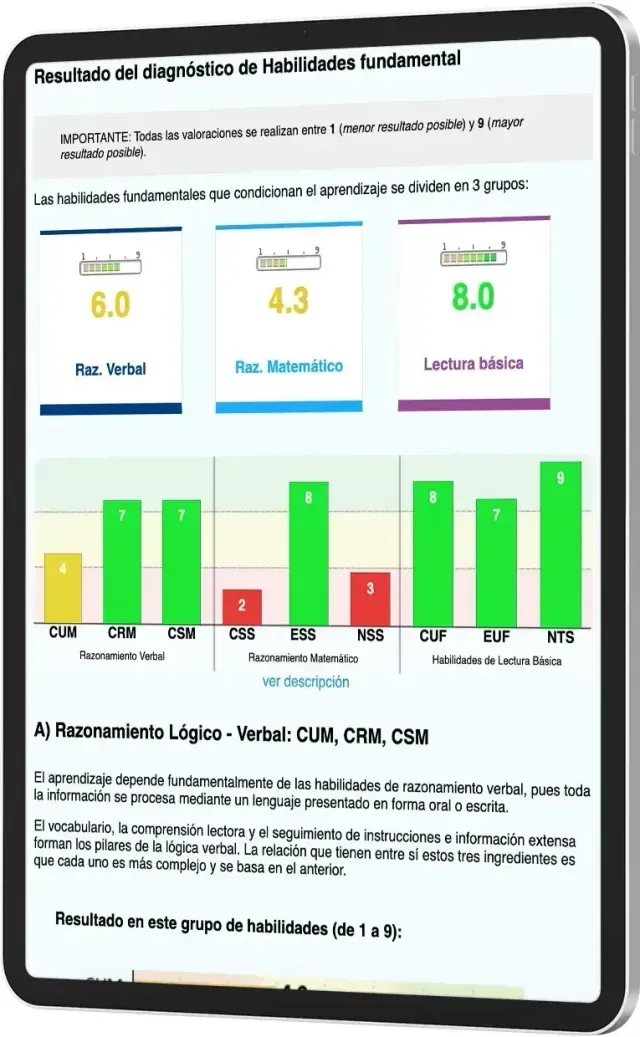Habilmind > Related to students' academic performance > Fundamental Skills Battery
Fundamental Skills Battery
Set of assessment tools
A criterion-based tool that analyses the level of development or prerequisites for acquiring fundamental learning skills.
✍🏻 Author: Isauro Blanco and the Habilmind R&D&I Team.
ℹ️ Application: Group and individual.
🕓
Duration:
- Fundamental Skills for primary, secondary, and sixth-form students: 30 minutes.
- Fundamental Skills for early years students: 4 to 5 years.
✅ Applicable age range:
- Fundamental Skills for primary, secondary, and sixth-form students: 6 to 18 years and adults.
- Fundamental Skills for early years students: 4 to 5 years.


.
What tools are included in this battery?
Fundamental Skills for primary, secondary, and sixth-form students
Analysis through a criterion-based test that uses nine dimensions to assess the level of development of fundamental learning skills.
Fundamental Skills for early years students
Analysis through a criterion-based test that measures the level of development of skills or prerequisites for acquiring foundational learning.
What does your school obtain from this tool?
01
Anticipate
Potential learning difficulties.
02
Facilitate
Foundations for solid learning.
03
Identify and enhance
Each student's cognitive development.
04
Detect
High capacities.
05
Enable
Personalised learning.
Problems you avoid (or mitigate) when using the Fundamental Skills Battery
1.School failure: Early detection facilitates intervention to prevent learning difficulties from becoming chronic and to provide an appropriate educational response.
2.Difficulties in reading proficiency and comprehension: Reading is the foundation of all learning; struggles in this area can affect performance in any subject, including mathematics. This tool can identify which skill or skills are not sufficiently developed, allowing targeted intervention to prevent an impact on reading competence.
3.Difficulties in learning mathematics: Mathematics often causes frustration because the root of the difficulty is not identified, and reinforcement is applied without understanding what is hindering comprehension. Identifying the source of the difficulty helps prevent it from becoming a long-term issue.
4.Lack of motivation and low academic self-concept: A false belief of low ability due to poor or insufficient academic performance directly affects intellectual self-esteem and, consequently, motivation. Understanding their skills, how they influence performance, and how they can be strengthened helps students feel more in control and motivated to improve.
Useful Links
How frequently can the tests be administered?
At Habilmind, we recommend that this test be administered to students every two years and not in a shorter period. Read more
Should students be able to answer all the questions correctly? Read more
Can academic performance differ from test results? Read more
Why might a student have a less developed lower-level ability compared to more complex ones? Read more
Try it for free, with no obligation
Request access to the tool through the "Try for free" button so you can explore it first-hand.
(*) Free trials are available for schools, colleges, institutes, universities, clinical psychologists, and researchers.































